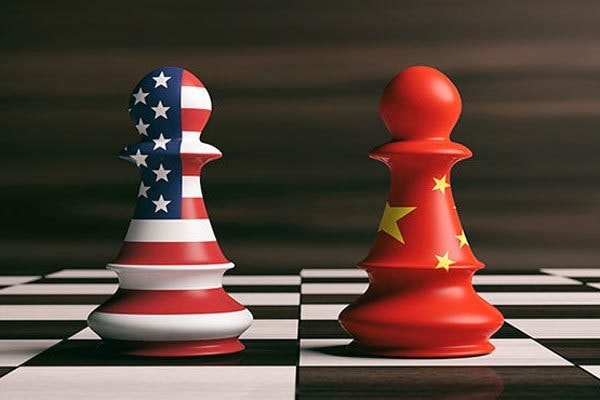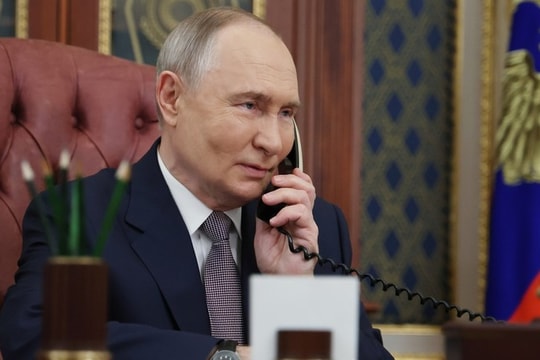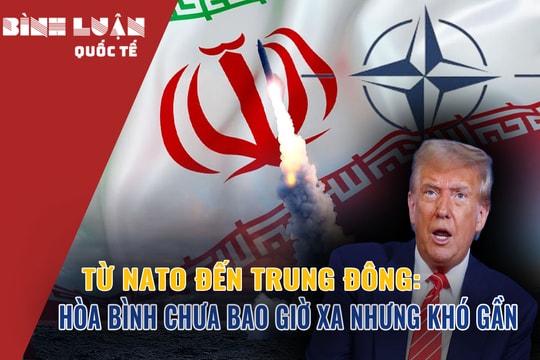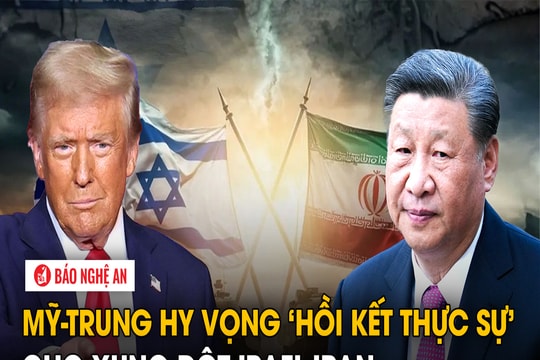US-China tensions escalate, cold war 2.0 breaks out?
Observers have noted many signs that a new Cold War between the US and China has actually begun, instead of just existing as a threat as before.
When China conducted amphibious landing exercises in disputed waters in the South China Sea earlier this month, the US Navy immediately dispatched two aircraft carrier strike groups to the region for exercises in "support of a free and open Indo-Pacific region."
It remains unclear how close the US and Chinese warships came, but it is one of the most striking recent examples of how the bilateral relationship is turning into Cold War 2.0, as some experts have warned.
|
Negative developments
Another twist came on July 14. First, the British government reversed an earlier decision and announced that equipment made by Chinese tech giant Huawei would be banned from the country’s 5G networks, a major blow to one of the mainland’s leading companies.
According to observers, the UK's decision to "ban" Huawei partly stems from Washington's sanctions announced in June against the company, which have limited its access to US technology. With the US's strong action, experts predict that Huawei may no longer be able to continue to be a key supplier of 5G solutions and equipment in the world.
Paul Scharre, a defense expert at the Center for a New American Security, added that Britain's decision came after Beijing announced it was tearing up agreements with London over the Hong Kong dispute; a bloody clash between Chinese and Indian troops in a disputed border area that left dozens of Indian soldiers dead; and after Beijing sought to pressure other countries to use Huawei products.
Also on July 14, US President Donald Trump signed into law and approved an executive order to sanction China over Hong Kong after the new national security law took effect in the special administrative region.
The US Navy then announced that it had conducted one of its regular “freedom of navigation” operations near Vietnam’s Spratly Islands: sending a guided-missile destroyer into waters claimed by China. It was the first such mission since US Secretary of State Mike Pompeo declared on July 13 that Beijing’s claims to most of the South China Sea were “completely unlawful,” accusing China of waging a “campaign of bullying.”
Previously, China announced sanctions against a number of US officials and lawmakers in retaliation for Washington's previous similar move.
Last week, FBI Director Christopher Wray issued a stark warning, calling Chinese espionage "the greatest threat to America's information, intellectual property, and economic vitality."
It all comes after a months-long war of words over the novel coronavirus, in which the US and China have repeatedly blamed each other for the origins of Covid-19 and their handling of the outbreak.
Escalation of confrontation
For decades, U.S. foreign policy makers have generally assumed that if the West traded and engaged with China, the mainland would gradually reform and curb its alleged violations of international law, from excessive maritime claims to trade protectionism and intellectual property theft. That view has changed, however, as China has adopted increasingly assertive policies in recent years, according to NBC.
Both President Trump and his Democratic rival, former Vice President Joe Biden, are currently campaigning to promote who is tougher on China. Beijing currently has few allies in the US Congress, whether Democrats or Republicans.
Dmitri Alperovitch, President of the Silverado Institute for Policy Advancement, one of the first cybersecurity experts to publicly denounce Chinese hacking campaigns, noted that in a deeply partisan political arena like the US, opposition parties remain united in the view that "China is not our friend."
Such assessments can be found on both sides. In a speech to a Beijing think tank last week, Chinese Foreign Minister Wang Yi stressed that Beijing-Washington relations were “facing the most serious challenge since the establishment of diplomatic relations.” He said that US China policy was “based on strategic miscalculation, ignorance, and full of emotions, whims and stubbornness.”
James Lewis, a former US State Department official who traveled frequently to China as a cybersecurity expert and now works at the Center for Strategic and International Studies, sees the situation getting worse. Lewis and other experts believe that the current conflict between the two powers is not the same as the Cold War between the US-led West and the Soviet-led East, with competing economic and political systems that are separate and independent.
Today, the Chinese economy is deeply intertwined with the economies of the United States and Western Europe through trade and investment. Chinese tourists travel around the world, and hundreds of thousands of mainland students study at universities in the United States and Europe each year.
But after two decades of trying to gently persuade China to play by the rules that developed nations set up after World War II, American policymakers have finally concluded that this approach is not working.
New Cold War Version
Analysts say the US will continue to take measures to punish Beijing for what the West considers violations of international law.
China, on the other hand, will continue to build missiles and other systems to counter US power in the Western Pacific. The US will of course pursue technology to counter these weapons. In addition, China is believed to be able to anger the US by not enforcing sanctions on North Korea.
Faced with a shortage of medical supplies caused by the Covid-19 pandemic, US lawmakers are rethinking the US’s heavy reliance on Chinese manufacturing, including pharmaceutical ingredients. Lawmakers from both parties are also pushing for increased US government investment in areas that compete with China in technology, such as artificial intelligence and quantum computing.
In June, Democratic leader Chuck Schumer teamed up with Republican Tom Cotton to draft a bill supporting semiconductor manufacturing in the United States, suggesting that the goal of competing with China has brought together two lawmakers who “rarely have common ground.”
Experts have expressed concern that when the new Cold War between the US and China has begun, if one side miscalculates, it could turn into a "hot war". At that time, not only the two superpowers would be harmed, but the rest of the world could also suffer unpredictable consequences./.









